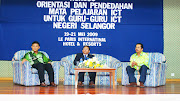# Experiential Learning
Definition: Teachers provide opportunities for real-world experiences based on students' prior knowledge.
Rationale: Brain-based research suggests that students who engage in real world experiences will attain and assimilate information effectively because the activities are meaningful in their day-to-day life experiences.
# Direct Instruction
Definition: A highly structured, teacher-centered information delivery method that may rely on drills, repetition, and scripted materials.
Rationale: Provides the teacher with a framework to impart information.
# Social Learning
Definition: Teacher-guided cooperative learning that facilitates student interaction.
Rationale: Strengthens students' ability to retain information through social interaction involved with cooperative learning within socially appropriate norms.
# Problem-based Learning
Definition: Teacher/student initiated inquiries that promote critical thinking and problem solving.
Rationale: Develops student ability to problem solve and think critically.
# Constructivist Instruction
Definition: Teachers apply brain research results and extend student learning by building on students' prior knowledge.
Rationale: The context in which an idea is taught as well as students' beliefs and attitudes affect learning.
# Thematic Instruction
Definition: Teachers provide cross-curricular learning on a central theme.
Rationale: Students are able to make coherent connections among disciplines and acquire an integrated knowledge base.
# Non-graded, Multi-age
Definition: Teachers implement curriculum based on students' individual learning progress rather than grade level.
Rationale: Students' chronological age and mental age do not always correspond. In a multi-age program students develop self-direction, responsibility, tolerance for others, social skills, self-assuredness, and positive attitudes toward learning and school.
# Multiple Intelligences
Definition: This theory, developed by Howard Gardner, suggests that intelligence based on IQ testing alone is far too limited; therefore, he proposed eight different intelligences to account for a broader range of human potential.
Rationale: It identifies students' abilities in other areas of intelligence and does not limit intelligence to strength in the logical-mathematical and linguistic areas.
# Miscellaneous Instructional Ideas
Definition: A list of ideas designed to stimulate teachers' thoughts and assist in expanding lesson plans.
Rationale: It provides a resource for the busy, time-challenged teacher.
# Additional Learning Theories
Definition: Some other generally accepted theories of learning with resource connections. This list is by no means exhaustive.
Rationale: Justice to all learning theories is not possible due to the vast number. This link supplies information on additional theories
Please visit this site for more info :
http://www.journeytoexcellence.org/practice/instruction/theories/
Sunday, February 20, 2011
Learning Theories and Teaching Strategies
Posted by Zahri HjRamlan at 2:33 AM
Subscribe to:
Post Comments (Atom)











0 comments:
Post a Comment